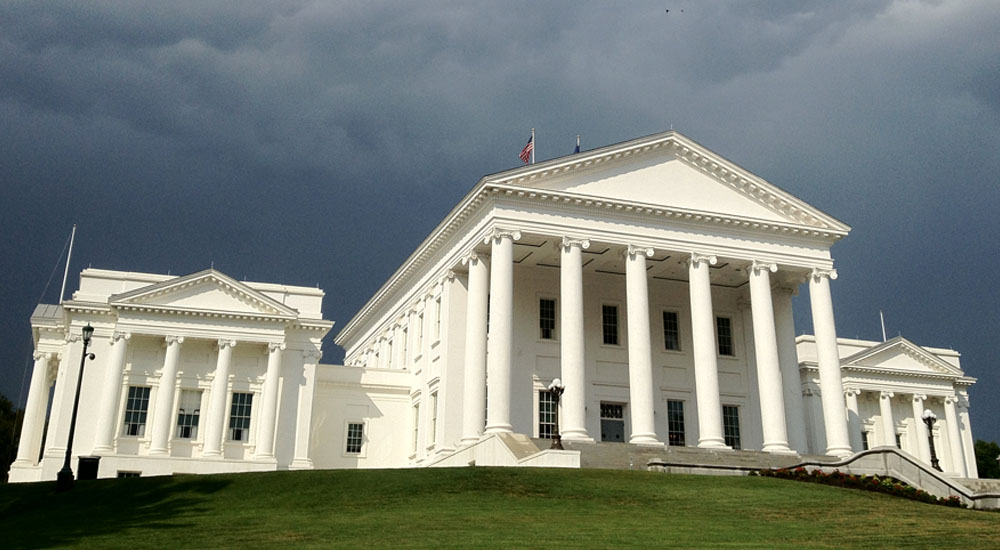Tough night for the home team.
Democrat Ralph Northam — embattled throughout the campaign and having committed nearly every error in the book — managed to ride the coattails of the national climate and defeated Republican Ed Gillespie 53-45, with slightly more narrow margins of defeat for both Jill Vogel and John Adams to Democrats Justin Fairfax and Mark Herring.
How to make sense of it? How did Republicans lose?
Here is the most dangerous part of the navel gazing experiment. Victory has a thousand fathers; defeat has a thousand causes. It will be easy and tempting to point towards one another for the failures 2017, and it would be dangerous to indulge in that temptation.
The one map that makes sense of it all? From our friends over at Daily Kos:
Whether you like Trump or whether you still share misgivings, these are numerical realities that cannot be ignored. Virginia’s House of Delegates lost seats because of the 2016 realignment — and there is no other simple explanation for it.
Republicans didn’t lose 2017 tonight; Republicans lost 2017 precisely one year ago when Donald Trump realigned the political map of the country. Pennsylvania, Ohio, Wisconsin and Michigan were gained at the loss of Virginia as a battleground state — simple as that.
What we witnessed tonight was nothing more than a perfection of the realignment that happened in 2016; a crystallization of realities.
Here’s the tale of the tape. As it stands right now, House Democratic Minority Leader David Toscano is telling the public that the Democrats stand to gain 14 seats in the Virginia House of Delegates, whittling down the 66-seat majority down to 52 seats led by prospective House Speaker-designee Kirk Cox.
To wit? Every HOD Republican in Prince William County — home of PWC Chairman and putative U.S. Senate candidate Corey Stewart — fell at the hands of Democrats tonight. That is hardly an encouraging springboard, and Republicans will be hard pressed to find a candidate that can unite Virginia in the same way Gillespie managed to do (twice).
Yet even by uniting the party, the temptation to either imitate a simulacrum of what Republicans might believe is working for the Democrats — Antifa violence, protests, and a hard partisan turn — or to envelop ourselves into a pragmatism that provides a slow handbasket to the progressive fast handbasket is omnipresent. Both will be the wrong answers.
Part of the solution is a good, hard look towards the demographics we have conceded in a short-sighted attempt to whip up voter enthusiasm in certain quarters at the expense of long-term damage to the Republican brand.
For a start, Virginia Republicans will need to stare long and hard at these numbers over at VPAP. Losing certain demographics in almost totality (see: African-American) is unacceptable and has to be changed. Losing lower income families in Hampton Roads and Central Virginia is unacceptable. Forfeiting minority voters 2 to 1 is unacceptable — and we’re doing it to ourselves with a solid refusal to listen.
So long as that remains the case, then Republicans deserve and earn defeat. If the definition of insanity is to do the same thing over and over and expect a different result, pushing away minorities and low-income families as “takers” is no way to build a consensus. We have to demonstrate in clear, unambiguous terms why the virtues of freedom are better than the vices of subsidy.
This also means that we have to pick an institution to improve. Public education, long the centerpiece of the political left, needs to have Republicans assiduously turning their eyes towards how to fix it — not balkanize it.
Improvements and investments are required in the sole institution we have as Virginians to create better citizens and give every child a fighting chance for a future. We haven’t been good on this front; we need to do better for public education and quit conceding as a partisan issue.
Virginia, it is said, is in the vanguard. Today, Virginia is alone — and the Democrats are enjoying the fruits of the 2016 realignment. Every twenty years, the GOP in Virginia undergoes a revolution of self. In 1993, it was Governor George Allen and ending parole. In 1970 it was Governor Linwood Holton and busting up Massive Resistance. To the foundation of the Virginia Republican Party after Reconstruction in the 1880s, it was General William Mahone and the Readjusters.
Every twenty years we adjust — and we are due for a readjustment today. Unfortunately, rather than having the luxury of leading our own way, this readjustment will be performed against the backdrop of Democratic control of all three statewide seats and a sizable minority in both the Virginia Senate and the Virginia House of Delegates.
Being bold and pragmatic is a difficult course. But a Republican Party committed not just to the idea of governance and the improvement of civic institutions, but to the core concerns of working class families… that’s a Republican Party that will deserve victory again.
We have those stories. We share those concerns. A builder can build faster than a destroyer can destroy — and for too long, we have sharpened our knives against fellow Republicans because we were low hanging fruit.
Perhaps after Election Tuesday, we will take the Democrats at their word? No one is coming to our rescue but ourselves.

